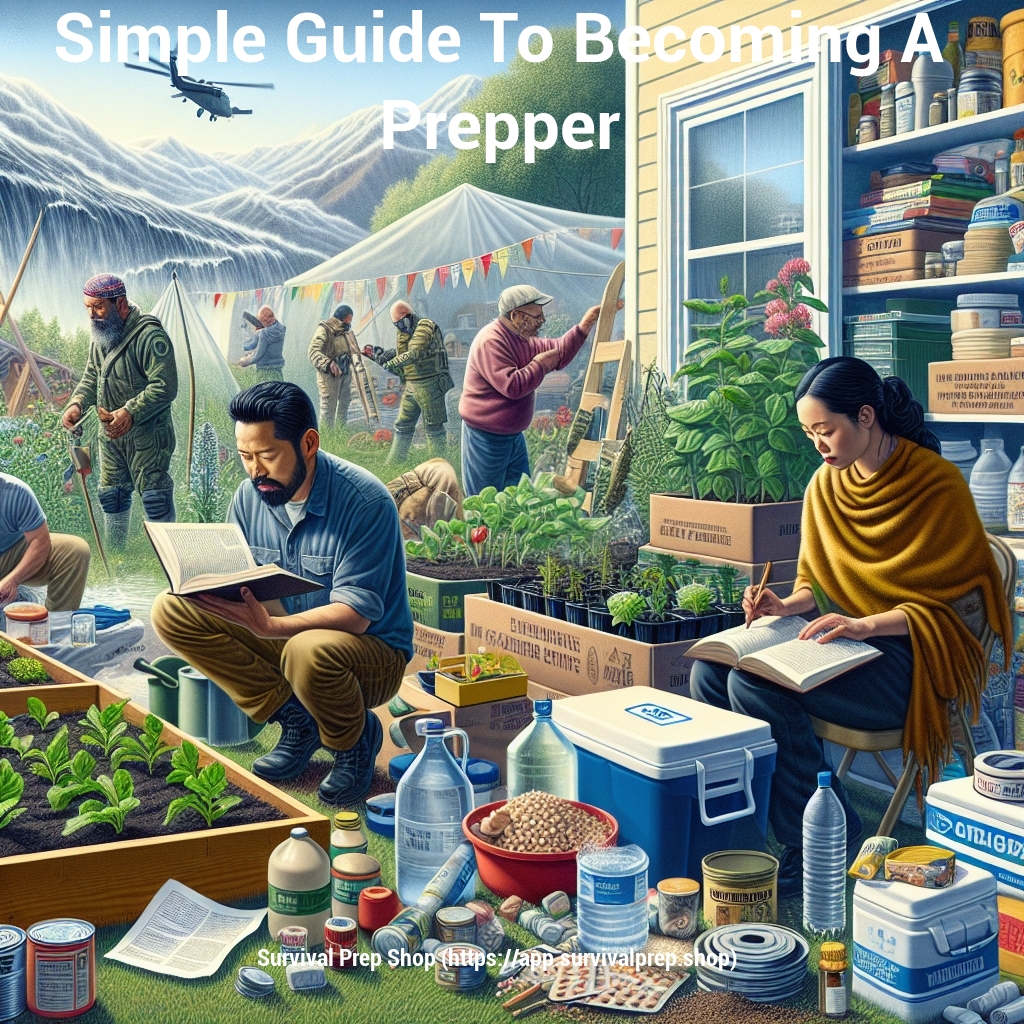
Hello everyone, and welcome to the Survival Prep Shop.
I'm delighted to join you in another invigorating discussion about all things survival. Embracing the life of a prepper is not easy. As we explore together, keep in mind that my advice comes from a place of personal practice and reflection, and involves embracing a rigorous but rewarding lifestyle.
Convenience is a given reward in regular lives, but as thrilling as it sounds, being a prepper is laborious. You need to have the right mindset to make the switch. The journey from being a wannabe to a dedicated prepper is long. It's crucial to rack up essential skills and enough knowledge to begin with, because a prepper focuses on stockpiling supplies for when adversity strikes. From non-perishable food items to advanced healthcare products, a prepared individual has it all. However, stacking up products is useless if you are not aware of ways to use them right. This is where knowledge comes into play. In short, being prepared is much more than just a thought. If you are ready to take the plunge, here are some ways to become a skilled prepper:
- Start small: Don't hesitate to make the switch, simply because you are inexperienced. Begin by investing time in learning about the life of a prepper. There are tons of information available. Embracing this mindset doesn't happen overnight. The more experience you gain, the higher your confidence will grow. Don't aim to be a pro or dedicated prepper right away. Consider executing a drill starting with a 3-day emergency plan, evaluating your ability to cope with the hurdles, determining what supplies you will need, and assessing if you can survive the crisis without added help. Once you navigate these hurdles successfully, you're gaining experience. Now plan for a 30-day emergency and gradually expand your experience.
- Stock essentials only: When disruptive circumstances hit, you have very little or no use for inessential items. Keep essential supplies handy at all times, which should include dry, non-perishable food items, packaged water, grains, sanitary products like toilet papers, tools, and important documents such as IDs, medical history, and a list of emergency contacts. Also, research alternative resource solutions, such as nearby lakes or creeks, and understand basic methods for water purification and storage.
- Polish a few life skills: Learning life skills can prove immensely advantageous. As a prepper, knowing your way around farming and cultivating your own crops is beneficial. You can grow a variety of produce, learn how to can and preserve them for future use, practice fishing, and achieve self-sufficiency.
- Create a community: Being part of a community has its own perks. Connect with like-minded neighbors and friends from support groups who will assist you in times of crisis. This network can help you make the right decisions, share experiences, and gather tips to make your life as a prepper thriving and less challenging.
- Master the skills of first-aid: A basic first-aid kit is not enough. Knowing and keeping in stock survival medicines is beneficial. Consider stockpiling a good number of antibiotics, exploring herbal options, and using essential oils which could relieve you of trauma.
Remember, each step has to be planned and executed as your journey to becoming a prepper is not just a project or an experiment but a lifelong commitment.
It's time to close this chapter, but I hope the lessons linger on. Whether you're just starting out or you're a seasoned prepper, it's always good to have various viewpoints. Thanks for letting me be one of yours. Thanks again.
TK – Survival Prep Shop
